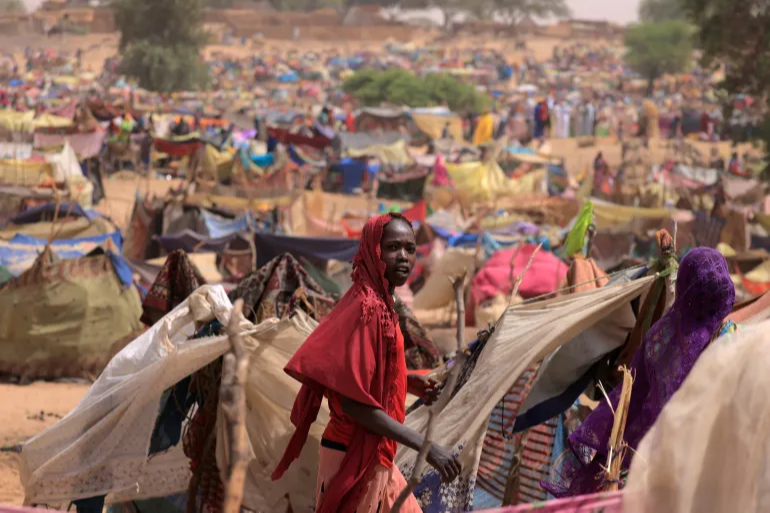
A Sudanese girl who fled the conflict in Darfur, where she had lived as a displaced person, moves past makeshift shelters near the border of Sudan and Chad [File: Zohra Bensemra/Reuters]
Khartoum, August 17 (RHC)-- United Nations agencies are warning that the number of Sudanese refugees in neighbouring countries has surpassed one million and the lack of food and vital services within the country is killing people.
The agencies highlighted the lack of medical supplies and the future repercussions of farmers being unable to plant their fields. “The situation is spiralling out of control,” they said.
The Sudanese army and the paramilitary Rapid Support Forces (RSF) have fought bitterly, devastating the capital, Khartoum, and setting off ethnically driven attacks in Darfur, threatening a protracted civil war and instability in the region. The agencies pointed out that more than 14 million children need humanitarian aid and over four million people have fled the fighting, either within the war-ravaged country or as refugees to neighbouring states.
The war has caused 1,017,449 Sudanese to cross into neighbouring countries, many of which were already struggling with conflict or economic crises. Those displaced within Sudan are estimated to number 3,433,025, according to the latest weekly figures published by the International Organization for Migration. The UN and human rights groups have accused both the military and the RSF of human rights violations. Both forces have rejected these accusations.
Khartoum has been reduced to an urban battlefield. Across the city, RSF forces have commandeered homes and turned them into operational bases, residents and doctors groups said. The army, in turn, has struck residential areas from the air and ground with artillery fire.
The millions who remain in Khartoum and cities in the Darfur and Kordofan regions have faced rampant looting and long cuts to power, communications and water services. “The remains of many of those killed have not been collected, identified or buried,” Elizabeth Throssell, spokesperson for the UN High Commissioner for Human Rights, said in a briefing in Geneva, adding that the UN estimates more than 4,000 people have been killed. Activists and doctors on the ground said the death toll is likely far higher.

